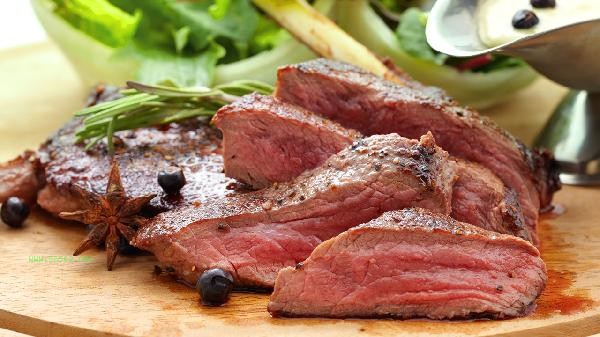Teenagers' inability to eat meat may be related to genetic factors, high metabolic rate, unreasonable dietary structure, abnormal digestion and absorption function, chronic wasting diseases, and other factors. Suggest adjusting diet and lifestyle based on specific reasons, and seeking medical attention to investigate pathological factors if necessary.

1. Genetic factors
Some adolescents have high basal metabolic rate or lean body shape due to family genetic characteristics, which are physiological phenomena. This type of population usually has one parent with similar body shape characteristics, with relatively low skeletal muscle content but normal physical function. By increasing the intake of high-quality protein and combining it with strength training, body composition can be improved, but there is no need to excessively pursue weight gain.
2. High metabolic rate
During the vigorous growth and development stage of adolescence, the secretion of thyroid hormones and growth hormones increases, leading to a significant expenditure of basal energy. Adolescents who are particularly active in sports may have a daily calorie requirement of over 3000 calories, and if their dietary intake is insufficient, they are prone to negative calorie balance. It is recommended to choose high-energy density foods such as nuts and whole milk dairy products as snacks.
3. Dietary structure problems
Being picky about food or overly relying on fast food can lead to insufficient intake of nutrients such as protein and essential fatty acids. Some teenagers intentionally reduce their intake of staple foods to control their weight, which in turn affects muscle synthesis. It is necessary to ensure sufficient daily intake of grains, potatoes, livestock and poultry meat, beans and other foods, with a carbohydrate energy supply ratio of not less than 50%.

4. Digestive and absorptive disorders
Lactose intolerance, irritable bowel syndrome, and other digestive system problems can affect nutrient absorption. If accompanied by symptoms such as bloating and diarrhea, it is necessary to check for the presence of diseases such as celiac disease and inflammatory bowel disease. Try serving of individual dishes and choose low lactose foods. If necessary, colonoscopy should be performed to make a clear diagnosis.
5. Chronic wasting disease
diabetes, hyperthyroidism, tuberculosis and other diseases will lead to abnormal weight loss. This type of condition is usually accompanied by symptoms such as excessive drinking and urination, palpitations and hand tremors, and long-term low-grade fever. Diagnosis should be made through medical means such as blood glucose testing, thyroid function examination, and chest imaging. After diagnosis, treatment should be given for the primary disease.

It is recommended that teenagers maintain regular three meals and two additional meals, prioritize high-quality protein sources such as eggs, lean meat, fish and shrimp, and pair them with healthy fats such as nuts and avocados. Moderate resistance training daily can promote muscle synthesis, and ensuring 7-9 hours of sleep can help with growth hormone secretion. If there is no sustained weight gain or other abnormal symptoms, it is necessary to promptly seek medical attention from a pediatric or endocrinology department to investigate potential diseases.








Comments (0)
Leave a Comment
No comments yet
Be the first to share your thoughts!